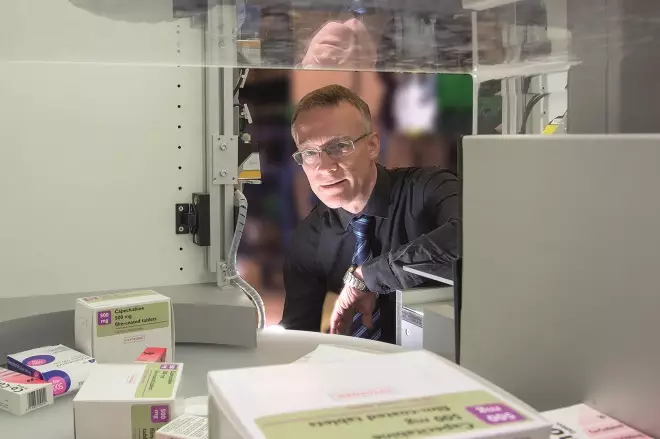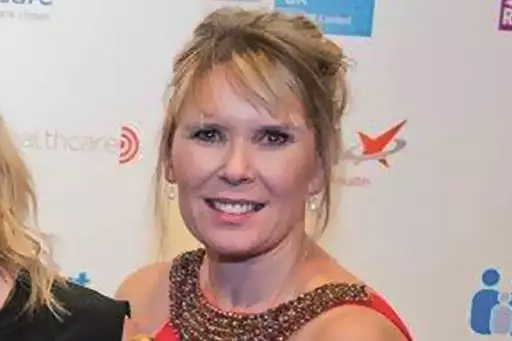
Shutterstock.com
Being interviewed for a new job can be intimidating at any stage of a pharmacist’s career. Although some questions are asked in almost every interview, knowing how to answer them honestly while showcasing the traits that employers are looking for can still be a challenge. The following seven questions, submitted by pharmacists via social media and online forums, are considered to be particularly problematic.
What would you do if a consultant or GP does not want to change a medicine you believe is not appropriate for a particular patient?
“This question should be anticipated for junior or newly qualified [pharmacist] posts,” says Dennis Lauder, chief pharmacist at NHS Frimley Health Foundation Trust. Any answer to such a question should consider “how to demonstrate confidence and assertiveness in the situation and how they would maintain a dialogue with fellow professionals,” he adds.
Candidates attempting this type of question should not include “any suggestion of direct criticism of the prescribing habits of fellow professionals,” Lauder explains, but notes that answers should also not imply that a GP or consultant should not be questioned.
Gurjinder Bhella, chief pharmacist at Black Country Partnership NHS Foundation Trust, agrees. “A common pitfall is to say that the doctor knows the patients and is more experienced so I would not challenge him,” he says. “We always ask this question twice to push the candidate: ‘The medic insists — now what do you do?’”
However, this type of hypothetical question may be challenging to score, particularly if an employer is trying to compare a large number of candidates, so it may be avoided in interviews given by community pharmacy multiples or other large pharmacy employers. Bernadette Brown, owner of Cadham Pharmacy in Scotland, says she would be more likely to phrase the question as: “Tell me about a time where you had to withhold dispensing a product owing to patient safety concerns and how you resolved this with the prescriber. How did you communicate your concerns?”
She explains that she would be disappointed if candidates said they would dispense a product despite being concerned about the patient’s safety. She adds: “I would also not want a confrontational candidate who barges in. I need people who are calm and can build relationships with my GP colleagues so that, if faced with a difficult conversation, it can be done in a supportive and friendly yet assertive manner.”
Can you tell me about a time things happened in a way they were not supposed to?
“This is a standard competency-based interview question where the interviewee is expected to give a real life example from personal experience that shows how they dealt with a particular problem or setback,” explains Lauder.

Courtesy of Dennis Lauder
Chief pharmacist Dennis Lauder says candidates should try to demonstrate an all-round optimistic attitude with a desire to succeed, but with a degree of humility
A spokesperson from community pharmacy chain Boots says that, in this type of competency-based question, the candidate should think carefully to choose an example that gives them the opportunity to display the behaviours the interviewer is looking for. “This may mean that the example might not display a career highlight because it is more important to showcase the behaviour that is being asked about,” the spokesperson says.
Don’t leave the response hanging on a bad or negative experience — always turn it into a positive one
To answer a competency question, a candidate should focus on three aspects, they explain: “Firstly, they should describe briefly the context around the situation they are describing. Secondly, explain what they did — the key actions and approach they took. Thirdly, explain what the results and outcomes were, so that the interviewer can understand the impact of the behaviours on the situation.”
Both Boots and Bhella emphasise the importance of making the example personal. Bhella comments that weak examples include those where the candidate had little impact or influence on the eventual improvements.
Lauder highlights that the more senior the post the candidate is applying for, the more complex the example situation that would be expected. “Emphasise the reflection with some insightful analysis and make suggestions as to how things would go differently in the future in light of this experience,” he recommends. “Don’t leave the response hanging on a bad or negative experience — always turn it into a positive one.”
Brown says she would be more likely to ask candidates to tell her about a situation with staff or customers where something unexpected took place and explain how they handled it. “A model answer for me would include a description of the event and how it impacted on the team,” she notes. She adds that it would be important that they kept calm, organised and delegated appropriately and had safety as their paramount consideration.
How would your friends describe you?
“It is always interesting to reflect on how we come across to others,” explains Brown. “Because we work in big teams in community pharmacy, both in the pharmacy and the broader primary care settings, we have to have a level of self awareness.” She would encourage candidates to reflect on why their friends might say particular things about them: “If they give good examples to back this up it means that they are considerate of others.”
However, Bhella believes the question is limited in nature. “It is easy to list several positive traits but the question does not elicit examples or evidence from the experience of the individual.”

Courtesy of Gurjinder Bhella
Chief pharmacist Gurjinder Bhella emphasises that he would rather candidates did not guess if they did not know the answer to a question
Lauder agrees, noting that, with preparation, anyone should be able to give the ‘correct’ response. He explains that the question may be looking to see if the candidate is self-aware and will indicate how the interviewee would like to be perceived. “It’s a common question, so think in advance about how you will answer it,” he suggests. “Try to demonstrate an all-round optimistic attitude with a desire to succeed, but with a degree of humility.”
He adds: “Avoid the standard ‘honest, reliable, friendly, approachable’ type responses that everyone would give thinking this is what the interviewers want to hear.”
What is the impact of the Francis report* on pharmacy?
“This demonstrates that the candidate has read relevant papers to pharmacy and has made some efforts to understand the wider healthcare environment,” notes Bhella.
Lauder emphasises: “This has become a common question so there is no excuse for not having knowledge of the report and some insight into the relevance to pharmacy.”
However, Bhella says it’s worse to guess. “I’d prefer the candidate to admit openly they were not aware of the paper or had not read it if that were the case,” he explains.
He believes that candidates should give a brief summary of what led to the inquiry, including a few highlights that caused such a public reaction. “Key points to note include raising concerns, how pharmacists were as culpable as other healthcare professionals, and the duty of care to patients that is shared by all,” he adds.
Lauder would not personally ask potential employees this question, though: “There are newer, hotter topics in the world of the NHS and hospital pharmacy, such as the Carter review**.”
Where do you see yourself in five years?
“A common pitfall is focusing an answer based on what the candidate thinks the organisation is looking for,” says the Boots spokesperson. “It is far preferable to answer based on where the candidate’s passions lie to ensure the best fit for a role.”

Source: Scottish Pharmacist
Demonstrating loyalty and continuity is important to community pharmacy employer Bernadette Brown
For Brown, demonstrating continuity and loyalty is important. “I once interviewed a girl with loads of red flags. She had several jobs and in each one she got an extra qualification and then left not long after they had trained her,” she remembers. “A great answer is that they are looking to have a career with me and we can look to find ways to fulfil those goals together. If I can see a way to help them progress and give them the opportunity to flourish, they are much more likely to want to be with my company in five years.”
A common pitfall is focusing an answer based on what the candidate thinks the organisation is looking for
Lauder notes: “Usually interviewers asking this question are looking for drive, ambition and a clear statement about a career path.” He suggests beginning with the job you are being interviewed for and explaining your reasons for applying. “If there are definite training opportunities, for example, a postgraduate diploma or independent prescribing qualification, that are part of in-house development then explain how achieving this will provide additional experience for future moves. If you have a definite idea as to how you want to specialise then it is okay to mention it, but don’t limit your options,” he says.
What salary are you expecting?
This question relates mainly to those applying for roles outside the NHS because those within the NHS adhere to the pay bands according to Agenda for Change, the fixed salary strategy for the NHS.
Within community pharmacy, the Boots spokesperson explains: “This is where the interviewer seeks to understand more about the candidate’s geographical mobility, current driving licence or access to transport, current salary and future expectations.” They add that this type of question is not scored but help both the hiring manager and candidate to establish suitability for the role.
If you’re newly qualified, don’t go too far outside the rate for starting salaries
Be aware of the market, Lauder advises. “If you’re newly qualified, don’t go too far outside the rate for starting salaries. Presumably there would be an indicative salary in the advert — if not, ring up to find out in advance of the interview.” He says: “Avoid coming out with a specific figure — try to find out from them first.”
As an independent pharmacy owner, Brown believes asking this question is a must. “Candidates need to come to the interview and have a clear idea of what salary they believe the job is worth. However, for me, it is more the overall experience the job can provide and additional terms and conditions that can make or break a person’s decision to come to work for you,” she says, adding: “Money is not the be all and end all of that particular conversation for me. It opens up expectations.”
If you were a drug, what drug would you be and why?
This might be asked to see how the interviewee reacts to an ‘off-the-wall’ question, according to Lauder. Bhella agrees: “This will show how well the candidate can think on their feet. This should, however, be demonstrated throughout the rest of the formal process of interview and assessment.” He adds that he would expect this question to be asked at the end of the interview to relax the candidate and make them smile.
Brown suggests heart medicines might be a good choice. “They work hard, are dependable, and you could not do without them. They are often needed with other medicines so imply you would be part of a bigger team.”
*The Francis report, which was published in February 2013, looked into the failings of care at Mid Staffordshire NHS Foundation Trust.
**The Carter review, published in February 2016, investigated efficiency in hospitals.


